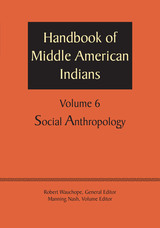
Ethnicity, Nash suggests, is formed by historical processes based on preexisting elements of society and culture. Notions of ethnicity have at their core the recursive metaphor of "blood, bed, and cult"—body substance, kinship, and religious belief. When individuals who perceive themselves bound by these ties are threatened in some way, ethnicity becomes a unifying call to action. Nash identifies a number of concepts—political self-rule, economic opportunity, cultural identity, religious freedom—that have been rallying cries for ethnic struggles in the twentieth century. He offers a novel analysis of the ways that ethnic groups identify themselves and maintain "boundaries," and he assesses the circumstances under which ethnicity may be relevant or nearly irrelevant to political, economic, and cultural dynamics.
Nash presents three case studies that highlight the multifaceted nature of ethnicity and that each demonstrate a particular mode of comparative method. He compares a situation of conquest (Ladino and Maya in Mexico and Guatemala), a new, excolonial nation with nearly equally sized groups (Chinese and Malays in Malaysia), and a small immigrant group in a large nation (Jews in the United States), pointing out the many possible combinations of political, economic, or cultural struggles in ethnic conflicts. Even in nations where such conflict is minimal, Nash warns, ethnicity remains a reservoir of turbulence in a world where power, wealth, and dignity are unevenly and illegitimately distributed.

Social Anthropology is the sixth volume in the Handbook of Middle American Indians, published in cooperation with the Middle American Research Institute of Tulane University under the general editorship of Robert Wauchope (1909–1979). The volume editor is Manning Nash (1924–2001), Professor of Anthropology at the Center for Study of Economic Development and Cultural Change, University of Chicago.
This volume provides a synthetic and comparative summary of native ethnography and ethnology of Mexico and Central America, written by authorities in a number of broad fields: the native population and its identification, agricultural systems and food patterns, economies, crafts, fine arts, kinship and family, compadrinazgo, local and territorial units, political and religious organizations, levels of communal relations, annual and fiesta cycles, sickness, folklore, religion, mythology, psychological orientations, ethnic relationships, and topics of especial modern significance such as acculturation, nationalization, directed change, urbanization and industrialization.
The articles rely on the accumulated ethnography of the region, but instead of being essentially historical in treatment, they aim toward generalizations about the uniformities and varieties of culture, society, and personality found in Middle America. The collection is an invaluable reference work on Middle America and a provocative guide to scholars engaged in furthering understanding of humans and society.
The Handbook of Middle American Indians was assembled and edited at the Middle American Research Institute of Tulane University with the assistance of grants from the National Science Foundation and under the sponsorship of the National Research Council Committee on Latin American Anthropology.
READERS
Browse our collection.
PUBLISHERS
See BiblioVault's publisher services.
STUDENT SERVICES
Files for college accessibility offices.
UChicago Accessibility Resources
home | accessibility | search | about | contact us
BiblioVault ® 2001 - 2024
The University of Chicago Press









